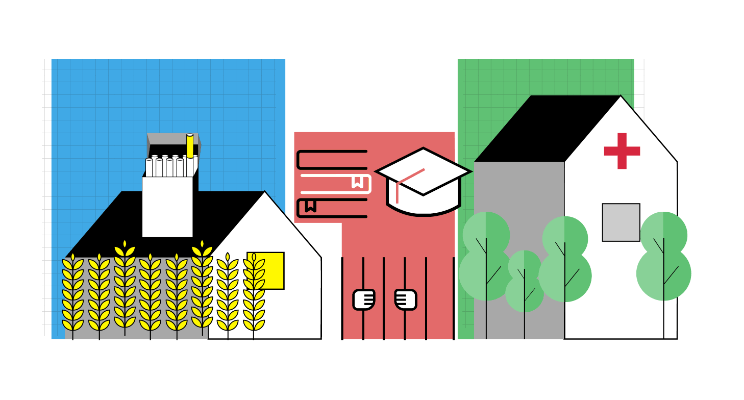
This week, Cerner announced the launch of the Social Determinants Innovation Collaborative (SDIC), a group of over 30 health systems that come together to share best practices and steps forward in addressing social determinants of health.
The Impact of Social Determinants of Health Data
The CDC defines “social determinants of health” as the circumstances in which people are born, grow up, live, work, and age. Social, environmental and economic factors – such as transportation, housing, nutrition, and education level – can have a big impact upon medical outcomes. Healthcare providers are making SDOH a greater priority as their finances are increasingly tied to quality or other “value-based” measures.
SDIC Meetings
The group of health system leaders meets regularly to share their experiences solving for challenges and barriers to care in their communities. These meetings help organizations understand how to create synergies on community-based navigation, link clinical and community strategies, model social determinants of health screening and workflows, and leverage community partners. The SDIC most recently discussed food insecurity and opioid and substance abuse, with the next meeting focused on transportation. Cerner supports client health systems with screening tools and questionnaires built into the EHR to identify challenges like food insecurity, housing, transportation, access to care and more.
SDIC Founding Members & Participating Health Systems
The founding members of the SDIC are Atrium Health, Cook County Health & Hospitals System, Los Angeles County Health Services, Marshall University of Medicine/Cabell Huntington Hospital, Truman Medical Centers, and Winona Health. Here is a brief look at how some of the founding health system members are addressing social determinants of health through technology and community outreach.
Truman Medical Centers shared its experience with campaigns focused on education and housing instability. TMC sought to combat chronic disease through nutrition education and advocacy with their classroom on wheels, delivering affordable and healthy foods. TMC also launched a behavioral health program to help stabilize homeless patients with access to housing units, in partnership with third parties in the community.
Los Angeles County Department of Health Services addressed behavioral health needs by using a universal screening tool within the EHR to screen for food insecurity, among other social determinants of health. The LA County Department of Health Services partnered with the county Department of Public Health to use the information to link people in need to CalFresh, known federally as the Supplemental Nutrition Assistance Program.
Marshall University School of Medicine and Cabell Huntington Hospital are working to address substance abuse and addiction in the region through a combination of research, clinical training, and collaboration with community organizations. Marshall University faculty are leading the nation in innovative research and training opportunities in addiction sciences.
The other health system members of the SDIC include:
· Accenture
· HCA Midwest
· Baptist Medical Center
· Boston Children’s Hospital
· Carroll County Memorial Hospital
· Children’s Hospital of Orange County
· Children’s Mercy Hospital
· Children’s National
· Clay County Memorial Hospital
· Dignity Health
· Fort HealthCare
· Geisinger Heath
· Gillette Children’s Specialty Healthcare
· Indiana University Heath
· Intermountain Healthcare
· Lafayette General Health System
· Martin Luther King Jr. Community Hospital
· MedStar Health
· Midland Health
· Millennium Collaborative Care
· Norton Sound Health Corporation
· Public Health Foundation
· San Mateo County Health
· South Central Foundation
· Stony Brook Medicine
· Suffolk County Public Health
· Truman Medical Center
· United Way of Delaware
